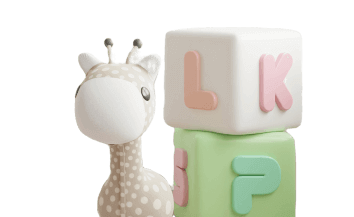-
By: emimo
-
March 25, 2024
Understanding Jaundice in Newborn Babies
Jaundice, characterized by yellowing of the skin and eyes, is a common occurrence in newborn babies that can cause concern for parents. While often temporary and harmless, jaundice requires careful attention and management to ensure the well-being of the baby. This comprehensive guide aims to provide a detailed exploration of jaundice in newborns, including its causes, symptoms, treatment options, and home remedies, to empower parents with the knowledge needed to navigate this condition effectively.
- Causes of Jaundice in Newborn Babies
- Physiological Jaundice: The most common type of jaundice in newborns, occurring within the first few days of life due to the immature liver’s inability to efficiently process bilirubin, a yellowish pigment produced during the breakdown of red blood cells.
- Breast Milk Jaundice: Some breastfed babies may experience prolonged jaundice due to substances in breast milk that inhibit bilirubin elimination, leading to elevated bilirubin levels.
- Blood Group Incompatibility: Rh or ABO blood group incompatibility between the mother and baby can result in increased breakdown of red blood cells and subsequent elevation of bilirubin levels.
- Prematurity: Premature babies are at higher risk of developing jaundice due to their underdeveloped liver function, which may take longer to process bilirubin efficiently.
- Hemolytic Diseases: Conditions such as hemolytic anemia or glucose-6-phosphate dehydrogenase (G6PD) deficiency can cause rapid breakdown of red blood cells, leading to increased bilirubin production and subsequent jaundice.
- What is Bilirubin?
Bilirubin is a yellowish pigment produced during the normal breakdown of red blood cells in the body. It is formed in the liver as a byproduct of hemoglobin metabolism. Here’s a breakdown of bilirubin:- Formation: When red blood cells reach the end of their lifespan (about 120 days), they are broken down in the spleen and liver. Hemoglobin, the protein in red blood cells that carries oxygen, is broken down into heme and globin. Heme is further broken down into biliverdin, which is then converted into bilirubin.
- Transport: Bilirubin is transported in the bloodstream to the liver, where it is conjugated (combined with glucuronic acid) to form conjugated bilirubin. Conjugated bilirubin is water-soluble and can be excreted from the body.
- Excretion: Conjugated bilirubin is then excreted into the bile, a digestive fluid produced by the liver. It travels from the liver to the gallbladder and is eventually released into the small intestine. In the intestines, bilirubin is further broken down by bacteria into urobilinogen, which gives stool its brown color.
- Measurement: Bilirubin levels in the blood can be measured through blood tests. Elevated levels of bilirubin in the blood, known as hyperbilirubinemia, can result from various conditions such as liver disease, hemolytic anemia (increased breakdown of red blood cells), or bile duct obstruction.
- Clinical Significance: Bilirubin plays a crucial role in diagnosing and monitoring liver and blood disorders. Elevated bilirubin levels can cause jaundice, a condition characterized by yellowing of the skin and eyes. Jaundice may indicate underlying health issues that require medical attention.
- Symptoms of Jaundice in Newborn Babies
- Yellowing of the Skin and Eyes: The most noticeable symptom of jaundice, caused by elevated levels of bilirubin in the blood, resulting in a yellowish discoloration of the skin and the whites of the eyes (sclera).
- Poor Feeding or Lethargy: Jaundiced babies may exhibit reduced appetite, decreased feeding frequency, or increased sleepiness due to the effects of elevated bilirubin levels on their overall well-being.
- Dark Urine and Pale Stools: Elevated bilirubin levels may lead to changes in urine and stool color, with urine appearing darker than usual and stools becoming pale or clay-colored.
- High-Pitched Crying or Irritability: Some jaundiced babies may exhibit increased fussiness, irritability, or high-pitched crying as a result of discomfort or distress associated with the condition.
- Difficulty Waking Up for Feeds: Jaundice can cause lethargy or sleepiness in newborns, making it challenging for them to wake up for regular feeding sessions, which are crucial for hydration and bilirubin elimination.
- Treatment Options for Jaundice in Newborn Babies
- Phototherapy: A commonly used treatment for jaundice, phototherapy involves exposing the baby’s skin to special blue lights that help convert bilirubin into a form that can be easily excreted by the body. Phototherapy may be administered using overhead lights, fiber-optic blankets, or portable devices.
- Exchange Transfusion: In severe cases of jaundice or when phototherapy is ineffective, an exchange transfusion may be performed. This procedure involves replacing small amounts of the baby’s blood with donor blood to reduce bilirubin levels rapidly.
- Monitoring: Regular monitoring of bilirubin levels through blood tests is essential for assessing the severity of jaundice and determining the need for treatment. Healthcare providers may recommend specific treatment interventions based on the baby’s bilirubin levels, gestational age, overall health status, and risk factors for complications.
- Supportive Care: In addition to specific treatments for jaundice, supportive care measures such as frequent breastfeeding or formula feeding, ensuring adequate hydration, and promoting skin-to-skin contact can help improve the baby’s overall well-being and facilitate bilirubin elimination.
- Medical Evaluation: Healthcare providers may perform additional tests or evaluations to identify the underlying cause of jaundice, especially in cases of prolonged or recurrent jaundice. These may include blood tests, imaging studies, or consultations with specialists to rule out underlying medical conditions that may require further intervention or management.
- Home Remedies for Jaundice in Newborn Babies
- Increased Feeding: Encouraging frequent breastfeeding or formula feeding can help promote bowel movements and eliminate excess bilirubin from the body. Breastfeeding is particularly beneficial for jaundiced babies, as breast milk helps stimulate digestion and supports liver function.
- Sunlight Exposure: Gentle exposure to natural sunlight can help reduce bilirubin levels in newborn babies. Place the baby near a window or outdoors for short periods, ensuring that they are adequately dressed to prevent overheating and sunburn. Sunlight exposure should be done in the morning or late afternoon to avoid peak UV radiation times.
- Hydration: Ensuring adequate hydration is essential for jaundiced babies, as dehydration can exacerbate jaundice symptoms and delay bilirubin elimination. Offer small amounts of water between breastfeeding or formula feedings to keep the baby hydrated and facilitate urine production.
- Herbal Remedies: Some herbal remedies may help promote liver function and bile flow, supporting bilirubin elimination in newborn babies. Dandelion root tea, barley water, or herbal tinctures containing milk thistle or dandelion extract are commonly used to aid liver detoxification and support overall liver health. However, it is essential to consult with a healthcare provider before using any herbal remedies, as their safety and efficacy in newborns may vary, and some herbs may interfere with breastfeeding or interact with medications.
Jaundice in newborn babies is a common and usually benign condition that requires careful monitoring and management to ensure the baby’s well-being. By understanding the causes, symptoms, treatment options, and home remedies for jaundice, parents can effectively navigate this condition and support their baby’s health and development. It is essential to seek guidance from healthcare providers for proper evaluation and management of jaundice in newborns, especially in cases of persistent or severe jaundice. With appropriate care and support, most newborns with jaundice recover fully and thrive.















Leave a comment